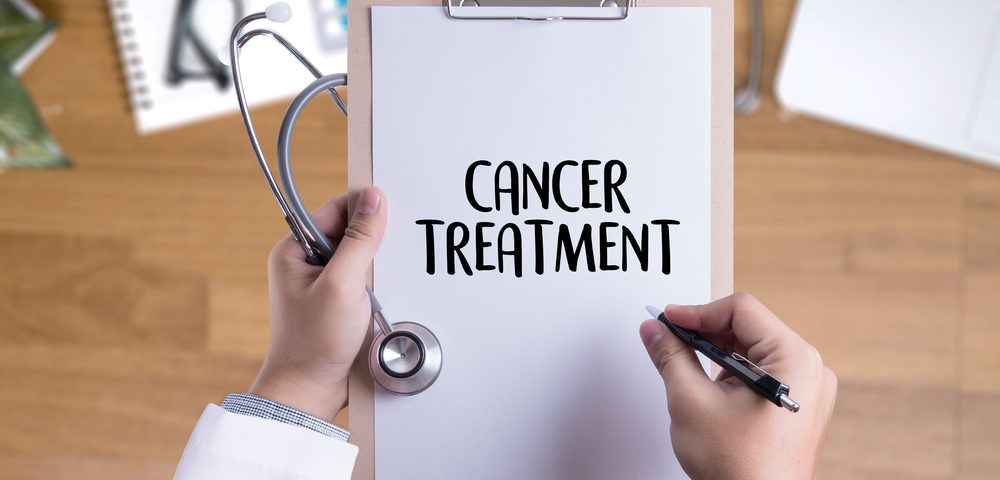Adcetris (brentuximab vedotin) in combination with chemotherapy is a valuable treatment option for patients with previously untreated advanced Hodgkin’s lymphoma, researchers said after revealing data from a Phase 3 clinical trial.
Adcetris, an anti-CD30 antibody-drug conjugate, is currently approved for patients with Hodgkin’s lymphoma who have relapsed or are not responding to standard treatment. Researchers hope this study will allow Adcetris to advance to a first-line Hodgkin’s lymphoma treatment.
The trial found an Adcetris-based treatment led to a larger reduction in disease progression and reduced or prevented poor response to treatment and death than a combination of chemotherapy alone.
The ECHELON-1 Phase 3 trial (NCT01712490), sponsored by Millennium Pharmaceuticals (now Takeda) and Seattle Genetics, randomized patients with stage 3 or 4 classical Hodgkin’s lymphoma to one of two treatments.
In the trial, 664 patients received Adcetris in combination with Adriamycin (doxorubicin), Velban (vinblastine), and Dtic-Dome (dacarbazine), and 670 received the standard chemotherapy treatment, composed of Adriamycin, Blenoxane (bleomycin), Velban, and Dtic-Dome, referred to as the ABVD group.
The results were described in the article, “Brentuximab Vedotin with Chemotherapy for Stage III or IV Hodgkin’s Lymphoma,” published in The New England Journal of Medicine.
Findings showed that at two years, 82.1% of patients in the Adcetris group had not progressed, had an incomplete treatment response, used a subsequent anticancer therapy, or died. Researchers referred to this measurement as the modified progression-free survival (PFS) rate.
The modified PFS rate for patients in the ABVD group was 77.2%. The difference could be translated as a 23% reduction in the risk of disease progression, death, or additional therapy with the Adcetris-based treatment.
While there were numerically fewer deaths in the Adcetris group — 28 compared to 39 — the difference was not statistically significant.
The co-author of the study, Tatyana Feldman, MD, director of John Theurer Cancer Center‘s T-cell Program at Hackensack University Medical Center, presented the data at the 59th Annual Meeting of the American Society of Hematology in December 2017.
The data also showed that Adcetris was linked to higher rates of potentially fatal depletion of certain white blood cells: The Adcetris-based treatment gave rise to a reduction of white blood cells in 58% of patients, while only 45% receiving ABVD experienced this side effect, caused by bone marrow toxicity.
However, the researchers noted that this side effect could largely be prevented with a protective treatment.
When they began pre-treating patients in the Adcetris-based group with granulocyte colony-stimulating factor (G-CSF), white blood cell loss rates went down — 11% developed it compared with 21% in those who did not receive the additional therapy.
Among patients who died, seven of the nine deaths in the Adcetris group were linked to a loss of white blood cells. Six of them had not received protective treatment, and the seventh had a loss of these blood cells before the treatment began, researchers said.
Symptoms of peripheral nerve damage were also more common among the Adcetris-treated patients. The symptoms, however, appeared to improve or disappear in the majority of affected patients.
Meanwhile, patients in the ABVD group had more lung toxicity — ascribed to the use of Blenoxane, which is known to be damaging to the lungs. Severe lung toxicity affected 1% of the Adcetris group and 3% of ABVD-treated patients. For that reason, researchers suggested that the Adcetris-based therapy may be particularly valuable for older patients.
The majority of deaths in the ABVD group — 11 of 13 — were linked to lung toxicity.
“The addition of brentuximab vedotin [Adcetris] to AVD combination chemotherapy — supported with G-CSF to alleviate myelotoxicity [bone marrow suppression] — merits consideration as first-line treatment for advanced Hodgkin’s lymphoma,” Feldman said in a press release.


